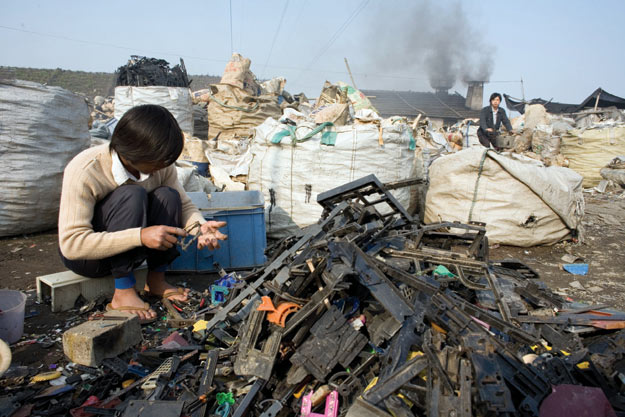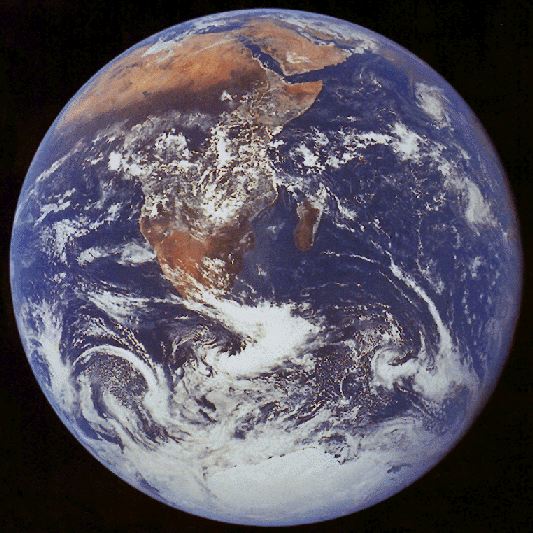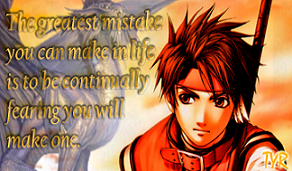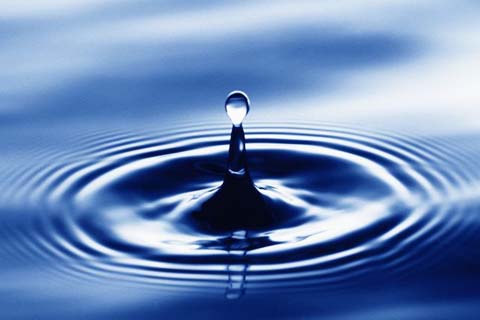Post by Tyr on Apr 23, 2009 19:47:56 GMT -8
To Mother Gaia
By Tyr Ryujin
By Tyr Ryujin
It is easy to live day by day in our own little world. It is so easy to just wake up in the morning, take a shower, to go to school/work, worry about what to eat for lunch/dinner later on, think about how much we are financially making, dream about buying that house on top of the hill or that nice red sports car you saw zooming past you while driving to school/work, and, at the end of the day, drive home, eat dinner then go sleep to start the cycle all over again. For most people, that is everything and they do not see nor care about what is going on outside that bubble, that little world. We are so blinded by our needs and wants, and even more wants, to see that, outside our little world, there are things happening that we should be knowledgeable about.
Arguably, we humans are evolution’s masterpiece. We, unlike any other animal, have cognitive abilities; we can think complex ideas like science and mathematics. We also retain memory and keep history. We can device tools, from the simplest stone spears of pre-history, to the atomic bomb of the twentieth century. And, on top of it all, we have the ability to perceive what the future could be like. We can plan ahead and are able to influence what will happen in the days when we are gone. Human beings, without a doubt, are now the masters of this planet and, sadly, we are on a suicidal course that could lead our great species into ruin.
Living in the concrete jungle or the plains of suburbia has given us this disconnection to the world around us. Our ethics, religions, and cultures pry us away from our connection to our planet. By connection, I do not mean a psychic link to the Earth’s soul but an awareness that we live in a system, a web of interconnected threads that makes life on this planet possible. We have, as a species, forgotten that. Instead, we see the earth as property and as merely a resource. We have placed dominion over our planet. Western religions and cultures have shaped populations all over the world to believe that we are indeed the superior species and we have taken that and run amok, balding once lush forests, draining entire seas and lakes and turning grasslands in to deserts. We see these things happening but we do not do anything nor care because “it’s just dirt/a puddle/air.”
We have created our own world. A world that, we believe, is far above and beyond the lowly soil of Mother Nature. In our world, land is owned, bought and sold, water is taken for granted and the atmosphere is an unlimited dumping ground of our exhausts and wastes. In our world, economic growth is more important than the balance of nature. “The sky is the limit,” that is our motto, as if the sky is limitless even though, in reality, it is not.
We are in this global spiral of growth. With the growth of the world economy, our population doubled from 3 billion in the 1960s to 6 billion in 1999. This number is said to become 7 billion by 2013. It is difficult to fully grasp such a large number in mere text. Exponential growth in population also means exponential growth in pollution and wastes, as well as an exponential need for resource and energy. In the movie “11th Hour”, directed by Nadia Conners and produced and narrated by the famous Leonardo Di Caprio, a contributor said that we and our society continue to grow and yet the planet does not. It means that we continue to grow in numbers and in demand of resources in a planet that has a fixed amount of resources. It is only a matter of time that our global spiral of growth will suddenly halt and become a global spiral of disaster. Planet Earth just cannot support us if we continue to run this course.
James Gustav Speth, dean of the School of Forestry and Environmental Studies in Yale University, describes the collision between our global economy and the earth, his so-called “Great Collision.” According to Speth, our global economy is one of great sources of earth’s deterioration. Fueled by a great need to provide for ever growing numbers of people, companies, manufacturers, and the market strive to compensate by siphoning resources from the earth faster than it can replenish itself. Fossil fuels are well on its way to disappearing entirely. Millions of year’s worth of sun energy, in form of fossil fuels embedded within the earth’s crust, is being consumed at an alarming rate, used as fuel for virtually everything, from gas stoves, goods manufacture, transport and even heating one’s home. Fossil fuels also fuel our ever growing society and economy. It is like a self-feeding mechanism that makes matters worse. On top of that, we are addicted to it, not only to oil, but also the conveniences and luxury our economy provides.

This shows where most of the greenhouse gases originate from.
Source: www.pscleanair.org/

It is widely known that fossil fuels, or rather the carbon that these fuels are made of, contribute to the climate change that has become a rave of concern in the internet as well as mass media. As we burn fossil fuels, the release of energy ultimately creates carbon dioxide molecules, a green house gas. Heat that the sun provides gets trapped underneath the blanket of the earth’s atmosphere. Normally, the atmosphere traps enough heat to keep the earth warm enough for life to flourish but with the addition of CO2, more heat is being trapped and this trapped heat is starting to become a threat to the sensitive balance of elements that allows Earth to host life. Already, the earth is a degree warmer than it was since the Industrial Revolution started, maybe even more. It may not sound much but this minute temperature difference could spell disaster to simpler organisms such as plankton and algae, foundations of the complex food chain.
Greenhouse gases and air pollution aside, we also dump tons of wastes in water. Plastics, chemicals, run-offs (immeasurable wastes from residential, agriculture, and urban cities), and sewage are only few sources of water pollution. To put this into prospective, Richard Wright, a professor of biology in Gordon College of Massachusetts, measured earth’s water, there is “a total volume of some 325 million cubic miles [of water] covers the Earth’s surface. About 97.5% of this volume is salt water…the remaining 2.5% is fresh water… [Of the 2.5%] two-thirds is bound up in the polar ice caps and glaciers.” Calculating the numbers, only 0.77% of all the water in the world is readily available for all the flora and fauna on earth.
We have a very limited amount of water and still we have the audacity to pollute it. Companies consistently dump chemicals into their local rivers and creeks. Though presently regulated, these chemicals still pose a threat to, not only the ecology of the water ways, but also to the people downstream. Run-off, like unpicked trash from the streets, gets carried by either rainwater or a river system all the way down into the sea. Agricultural fertilizers and pesticides also seep into the ground water or, just like solid run-offs, gets carried all the way into the oceans. The Gulf of Mexico, for example, is considered a Dead Zone because it is being fed by the most polluted river in the United States, the Mississippi. Another example of run-off pollution lies just 1000 miles off the coast of the state of California. The Trash Island, as it is called, is a collection of non-biodegradable runoff that found itself trapped the Pacific Ocean’s currents, creating a floating island of debris twice the size of the state of Texas. Numerous species of sea-faring birds, like seagulls and albatrosses, ingest this debris (usually plastics) and are unable to digest real food.

Location of the Trash Island.
Not only are we making the ocean our garbage heap, we are also making mountains of waste on terra firma. In a world where replacing things are cheaper than fixing them, we are facing a disaster involving our day to day trash, especially toxic and non-biodegradable garbage we now call “e-waste” or electronic waste. Nowadays, it is much easier and cheaper to just buy and replace an old computer, phone, or TV, than to just fix it. Also, technology is growing at a phenomenal rate that every year there are new models of cell phones, laptops and desktops, flat-screen high definition television, and, etc. There is still no practical way of disposing of these old and unusable electronics, unlike paper and plastic wastes. Electronic manufacturers are still adamant that the responsibility of recycling these wastes lies on the consumer. Without convenient and efficient ways to recycle such things, people end up merely throwing them away to be dumped or incinerated in the landfills. Burning electronic components can be very toxic, as well as burying them underground. It poisons the air and the earth. A majority of these e-wastes are shipped into third world countries, like India and Ghana, as well China in the past, where they are crudely recycled, in which workers (some of them children) pick the metal compounds out by hand and recycle those but leave the rest of the devices – the metal/plastic casings—into e-waste scrap yards.


An e-waste scrap yard and crude recycling.
I have discussed only a handful of problems that the world is facing on top and beyond the problem of economic recession. There are still the 50,000 animals and plant species going extinct every year, the rapidly growing water shortage, the unsustainable world market, the disappearing old growth forests of North America, the deforestation of the Amazon, the desertification of central United States, the thawing of the permafrost in Northern Canada and Russia, the rapidly disappearing Arctic ice, the collapsing glaciers of Greenland and the Antarctic that threaten to raise our sea levels by at least 20 feet, among hundreds of thousands of others. I am aware that there is no overnight solution to this problem and that no one group or country can solve a global crisis but I do know that there is a way if all the peoples of the world strive to make it so. Individual changes in attitude and behavior about environmental crises go a long a way. Education can take a person into new heights. Awareness sparks the want to do something and compassion fuels the need to make a difference. Those are the first steps, so easy to take that it amazes me how relatively few people have done so. I am no Ecologist, I am not a certified, highly-educated Environmentalist either, but I know that something is wrong. I know something must be done if we are to keep this planet for our future and the future of the generations that will come after us.

A scientist coined the phrase "The Earth is Sick" by examining what the planet looks like at night. He said that it looks like it is infested with some disease with all the lights of the world's cities lightening up the land masses.
I have heard once that “the Earth is sick” and I truly believe that. Mother Earth is diseased and it is only a matter of time that she succumbs. I do not know when that time will be but I am sure that it is soon. I do not want to wait until the time that we do know when the planet will succumb to all these stresses and decide to reset itself because then it will be too late. We do not have much time. As proud as our human ego is, realize that we are merely infants as a species. So many have come before us and surely many more will come after evolution has deem it right to phase Homo sapiens out. Life is tenacious and, ultimately, we will be fighting for the survival of our species. Life on earth will go on but if we continue to impact the environment as much as we do now, we might be facing a future earth that is hostile to human life. Some might say that we can easily live in Space, or maybe another planet, but in reality, we still do not have the capacity to fulfill this and, as citizens of this planet, we are ultimately bound by it natural forces. Remember that we are made for this planet, not the other way around. The physiology of our very cells is tailor-made for Earth’s conditions. Simply put, it will be difficult, if not impossible, for us to merely abandon Earth once we have totally desecrated it.
I, for one, believe that we belong here. This blue planet is the cradle of life for us and the countless other species of flora and fauna that exists. This is our home. This is the place that gave birth to this wonderfully intelligent and imaginative species known as Humans. For a moment, think about the one truth that remains beyond all the cultures, the religions and societies of this world. For a moment disconnect yourself from anything artificial and reconnect with nature. You will realize that outside our little world of concrete, asphalt and metal, something is happening, something colossal, and that something must be done. Outside our little world, Earth is calling out for change, not for its sake but for ours. Earth does not need us and it can continue orbiting the sun even after humans is gone, erased by evolution. We need it and, in reality, Mother Gaia is all we have.

Author's Note: Information in this essay is from what I have learned in the environmental classes I have taken throughout my college career. This is the for sake of awareness only. For solid facts, check out Environmental Issues News and Information, Greenpeace, Environmental News Network, and other environmental organizations. Research and education is the key to save Earth.









